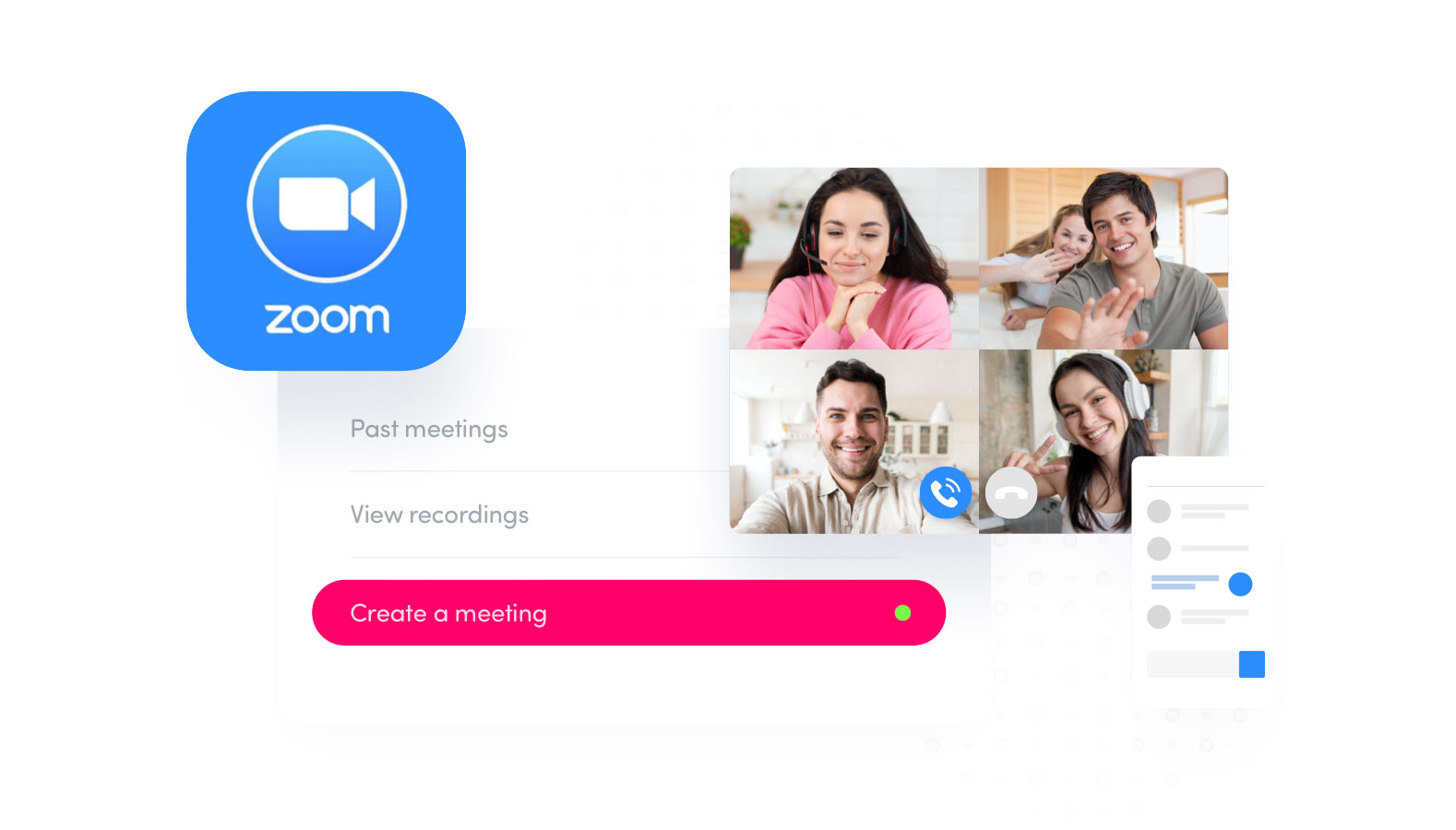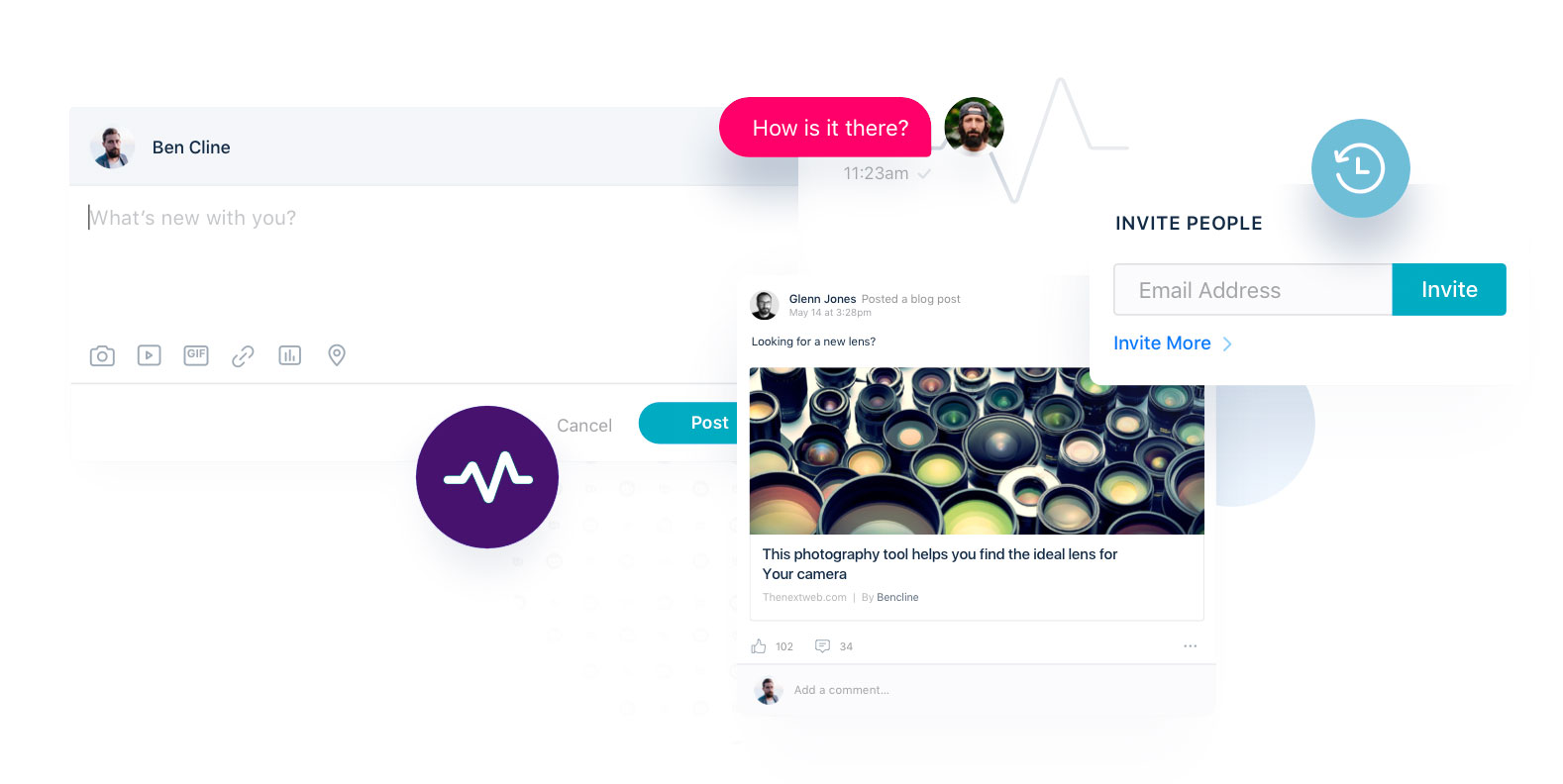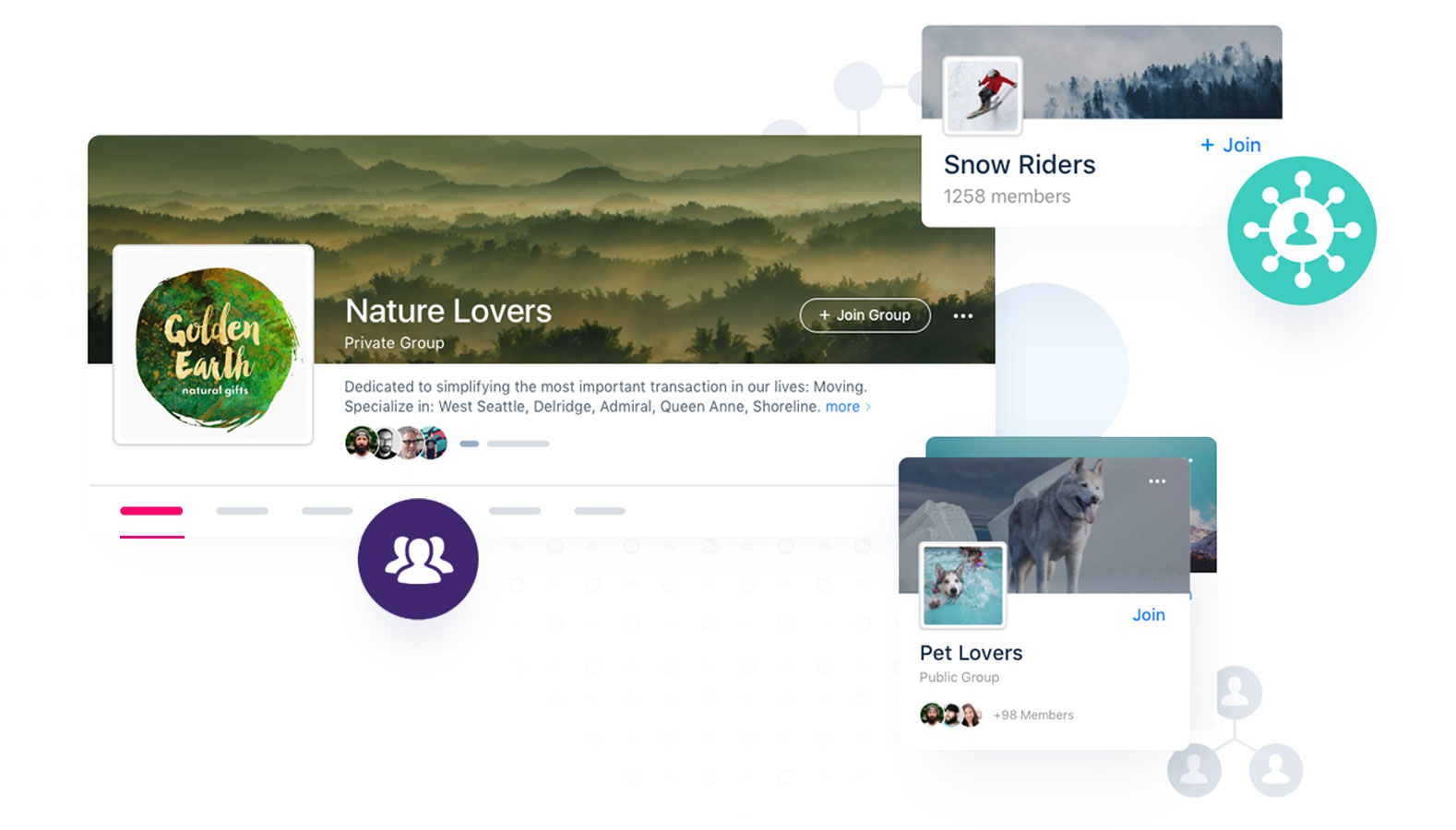Companies have been trying to bring employees back to the office, but new COVID variants keep derailing these plans. As employees become more acclimated to remote work, leaders should be prepared to face an onslaught of new employee expectations. We’ve transitioned into a new era of employment and hybrid workplaces, where employees work in-office or remote as needed, are the way forward for many companies.
In fact, 81% of employees want a fully remote or hybrid work schedule in the future. This requires a dramatic change in how many businesses operate, especially in regards to creating a company culture that responds to the demands of hybrid work. But don’t worry, you can still build a work environment that is inclusive, compassionate, and facilitates personal connection in or out of the office.

A compassionate foundation
Your company culture may be in flux as you try to work through a new employment model. But regardless of how you decide to structure your hybrid work environment, you must make the wellbeing of your employees a part of the bedrock of your company culture.
People have a legitimate fear of the health risks that come with going back to the office full time. If it’s not essential for your employees to be on-site to work face to face with colleagues, don’t force them back into the office. If you do, you could risk creating a stressful and unkind work environment in which employees are scared for their health and feel unheard.
If it’s essential for your employees to be in the office, be proactive and clear on the health measures that you’re taking to ensure everyone’s safety. This includes updated health and attendance policies. As the pandemic evolves, clearly communicate to your employees any changes you make to your safety plans.
Trust and transparency
Approaching the needs of your employees in a compassionate way will foster a culture of transparency and trust. Not only will leaders be accountable for the wellbeing of their employees, but employees will be trusted to complete their work, regardless if it’s done remotely or in the office.
A trusting culture has a real effect on your bottom line through improved employee morale. Instead of losing your most experienced workers due to stress and inflexible rules, they’ll become your biggest advocates. Flexible workplaces are in high demand, and your employees will let others know about your company culture through employee referrals and positive online company reviews.
Using the office for relationship building
Hybrid environments help offset some of the problems with fully remote work. Meeting your colleagues, managers, and executives in person is an important way to maintain your company culture and bring people together. As a counterweight to your distributed workforce, consider hosting regular team meetups in safe spaces, like planning a picnic or other outdoor events.
Company-wide events like Sales Kickoff, developer days, and volunteer opportunities are important parts of a positive work culture, but make sure that the health of attendees is your main priority. Schedule these events with advance notice so employees have time to get tested for COVID before they travel.
New hires
For new hires, in-office training is crucial to their understanding of your business as well as fostering the feeling of being a part of the team. Kick off these relationships with a hybrid on-site onboarding program. Not only will it encourage collaboration and the transfer of knowledge, it also gives your company the chance to set expectations around company culture and behavior for future events.
Combining in-person onboarding with individual and self-driven remote training can help new hires absorb information without relying on others in their new hire class who may be more outspoken. Assign online homework to be completed before the in-office training so everyone is ready to learn quickly when together.
Personal brand building
Employees need facetime and visibility within your organization to achieve their career goals, such as securing a promotion or raise. Fostering a personal brand is a necessary part of moving up in one’s career.
This is much harder when everyone is virtual. And for introverted or quiet employees, it’s too easy to get lost in the background of video meetings. When coffee meetings or lunch room chats aren’t an option, create alternatives.
Organizing a team or company offsite can help bridge this gap. Plan out sessions so that everyone has the opportunity to showcase their skills and accomplishments to the company at large. You can also show appreciation with an awards night or company wide shoutouts. Task team managers with ensuring everyone gets their fifteen minutes of fame.
Flip your use of open and closed space
Take everything you think you know about open office plans and throw it out. It’s time to flip the script. Instead of employees working in large open air rooms stuffed with desks – and definitely not six feet apart – make better use of your closed space meeting rooms.
Harvard Business Review suggests reversing your expectations of open and closed spaces. Instead of having everyone work the majority of their day in rows of open desks, allow individuals to take over meeting rooms, pods, and other small enclaves for their solo work.
The same logic applies to your open spaces. Instead of hosting meetings in small and cramped rooms, hold them in your larger open spaces. Having six feet of space not only alleviates health concerns, but it fosters transparency with important discussions happening out in the open.
Connecting virtually
Hybrid workspaces require collaboration tools that work no matter where your employees are in the world. About 60% of executives are planning to raise their spending on virtual collaboration tools and leadership training for managers. Luckily, there are plenty of options already available.
Create an intranet

Your first step is to centralize company knowledge. If you don’t have an intranet today, make it a priority. Company intranets can catalog sales pitch decks, product tutorials, access to IT support, pricing approval processes, marketing collateral, and technical guides, to name just a few resources.
Since remote work is often asynchronous, with everyone working on their own optimal schedule, a central repository of information is invaluable for employees to get answers they need quickly, instead of waiting for a colleague to be available hours later.
Employee initiatives
Your company’s pre-pandemic plans probably had workshops and lunch & learn opportunities for employees who want to upskill or learn about upcoming projects. Keep these events going online by scheduling video lunches where attendees bring their own meals, or if possible, send them a voucher to order lunch on a food delivery app.
Virtual employee events are a great way to bring attention to employee-led volunteer events, new hire meetups, and for department leaders to share important announcements, product releases, or initiatives.
Managing teams across time zones
One of the benefits of hiring a remote workforce is the access you have to the best talent, no matter where they live. The downside is that now you have a team of employees who are spread out across different time zones.
Instead of trying to get everyone on to the same schedule, adopt an asynchronous work culture. This allows employees to schedule tasks during their most productive times of day or around personal obligations, like childcare.
It also encourages a more compassionate approach to requesting your colleague’s time. Instead of sending messages, texts, and emails to a team member as soon as a thought occurs, you’ll need to weigh the urgency of your needs. Perhaps you can ask another teammate who’s currently available instead.
There are collaboration tools for every distributed workforce need including project management apps, video call software, communication channels, and dashboarding overviews. Managers and team leads can stay on top of their team’s goals no matter where people are located. Plus, these tools work just as well for employees in the office.
Inclusion in a hybrid work culture
Many companies have People Operations teams that focus on cultivating diversity and inclusion at work. This initiative is even more crucial for employees adapting to a hybrid schedule.
Think about all of the reasons that your employees may have unique needs and experiences. While business leaders may prefer seeing their employees in person, some people feel more included working remotely. A Future Forum survey shows that 97% of Black respondents want to work remotely and that it increases their feeling of belonging.
People with disabilities and health concerns also have a chance to excel in a hybrid workforce. Some employees have visible disabilities, like using a wheelchair or a walking cane, but others have invisible disabilities, like chronic fatigue, a compromised immune system, or mental illness. Remote and asynchronous work offers more flexibility to pursue their career goals. Completing their work in a safe environment is much easier than struggling to work in a busy office.
Flexibility and belonging
Employees can excel within a hybrid culture that lends them more flexibility during the work day. For those that have childcare responsibilities that take them away from their work at certain times of the day, flexible work means they can be both a parent and a member of the team.
Take your employees’ sense of belonging into account when planning virtual team events or in-person activities. For example, not everyone on your team may drink. Instead of happy hour, try to attend a cooking class together. The same applies for teammates with disabilities. Don’t schedule a sports day that they can’t participate in. Plan a team board game competition instead. Make compassionate plans that increase feelings of inclusion.

Get ready for post-pandemic work, now
Hybrid work shouldn’t make maintaining your culture harder. In fact, it can help your company improve the way you respond to your employees’ needs. By creating opportunities for relationship building, prioritizing health and wellness, and building your culture on a foundation of compassion, your company can retain and hire talented employees, no matter where they live.

Tahera Ali Khan is passionate about creating a healthier corporate work culture. You can find more of her work on her blog, Human Worker.







